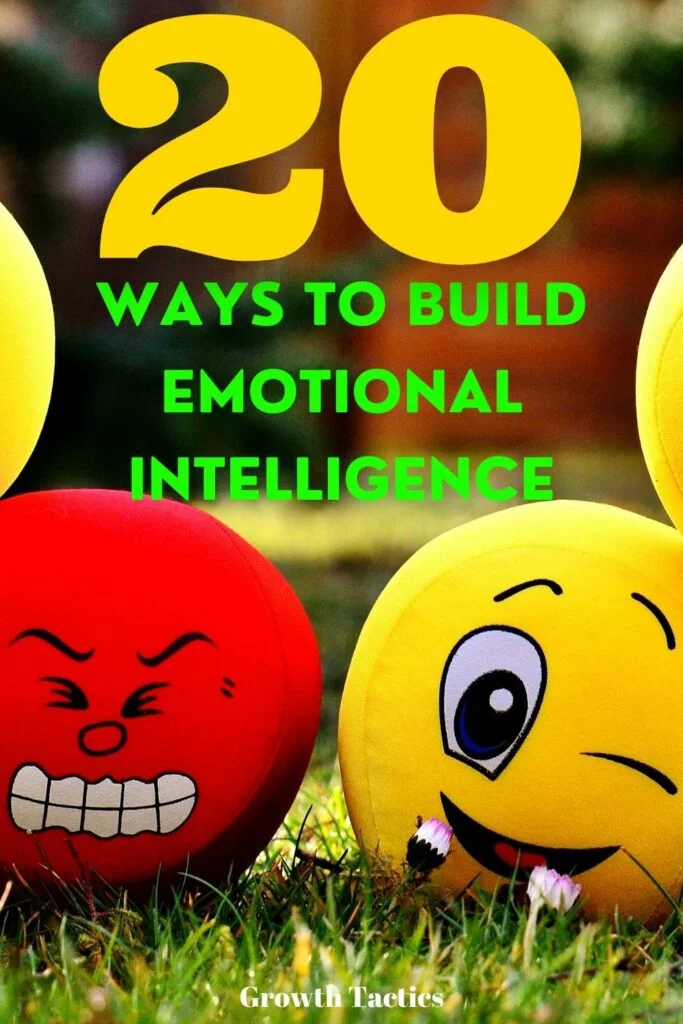Being self-aware and understanding how to handle your emotions is an integral part of building relationships with colleagues, clients, and other people in your life. In today’s post, we’re exploring how to develop emotional intelligence skills and sharing some ideas you can use for improving in this area.
Jump To Section
What is Emotional Intelligence?
Some of you may be asking “What exactly is emotional intelligence?” Emotional intelligence or EI is our ability to perceive our emotional state and that of others. It enhances relationships by enabling us to understand what’s going on in others’ minds, especially concerning feelings and motives.
Building strong relationships is vital to success in any field and emotional awareness or emotional quotient “EQ”, can be valuable in developing these relationships. Basically, having high emotional intelligence means being able to walk in someone else’s shoes.
Not only is it important to be emotionally intelligent for building relationships and getting along with others but it also helps you get to know yourself better and increases self-confidence. Often we are our own worst enemies but developing emotional intelligence will allow you to have more control over your emotions.
A Brief History of Emotional Intelligence
Emotional intelligence has deep roots in psychology. In the 1900s, psychologists like Edward Thorndike talked about “social intelligence.” They knew it was more than IQ that made people smart.
In the 1990s, Daniel Goleman made the term “emotional intelligence” popular. He showed how our ability to understand and manage emotions helps us lead better and achieve more. Think about it as a tool for personal growth and problem-solving in your own unique way. Each step you take with emotional intelligence brings you closer to a purpose-driven life.
Characteristics of Strong Emotional Intelligence
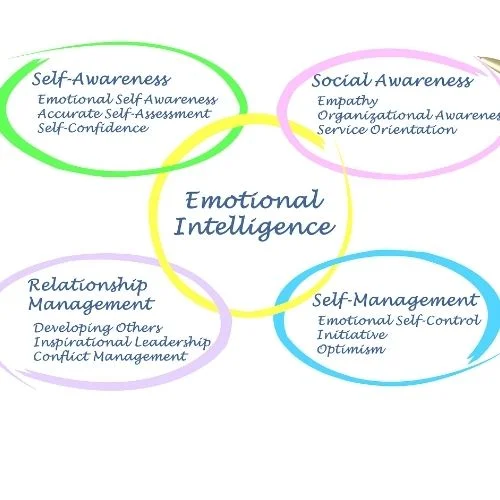
Self-Awareness is the ability to understand who you are and accept it. When you’re self-aware, you don’t project out a version of yourself that isn’t true to your real self. You are aware of your emotions.
Emotional Control is a skill that enables you to keep your emotions in check regardless of what’s going on around you. I know it’s not always easy to control your emotions but self-regulation is a skill that can be built and will help you keep a clear head and make better decisions during emotional times.
Motivation is strongly associated with emotional intelligence. People with a high EQ tend to stay motivated longer. Have you ever had a co-worker or a friend that let every single thing bother them? I bet they were not very motivated.
Strong Social Skills are the skills we use to communicate effectively with other people. Social awareness helps us forge relationships, get the best things in life, and positively impact society.
Developing Emotional Intelligence
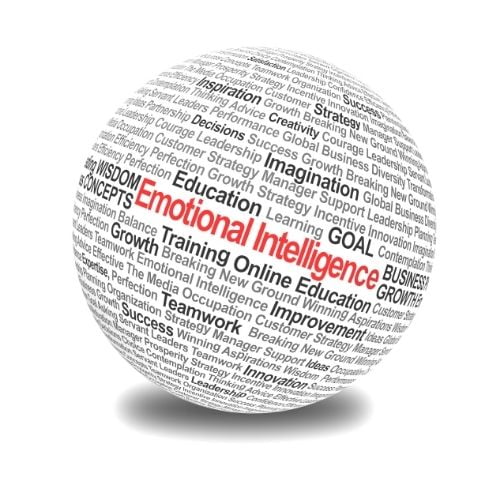
As you can see from the characteristics of emotional intelligence, really EQ can be broken down into two categories: How we recognize and our ability to manage our own emotions and how we recognize and deal with others’ emotions. First, we will discuss tips for developing emotional intelligence for our feelings.
Tips for Developing Emotional Intelligence With Your Feelings
1. Self-Evaluation
Begin with a self-evaluation to understand your current emotional state. Reflect on your reactions and emotions in various situations. Ask yourself, do you tend to overreact or underreact at times? What are your strengths and weaknesses with your emotions. Identifying these patterns can help you recognize areas for improvement and growth.
Next, take note of your emotional triggers and reactions. Be mindful of the circumstances that lead to these intense emotional outbursts. By understanding your impulses, you can work towards managing your reactions and fostering a healthier emotional balance in your day-to-day life.
2. Keep a Journal
Embrace the power of journaling to monitor your life’s events and emotional well-being. This simple practice offers more than just a record of your daily experiences. It provides a therapeutic outlet for you to express your thoughts and feelings, giving you much-needed clarity and perspective.
As you write in your journal, delve into your emotions and untangle complex thoughts. This process not only allows you to vent but also helps you reflect on your experiences and gain valuable insights. By regularly journaling, you’ll develop a deeper understanding of yourself and improve your emotional intelligence.
3. Recognize and Avoid Emotional Triggers
Acknowledge that emotional triggers, both positive and negative, exist in everyone’s life. It’s crucial to recognize and manage the negative ones to maintain emotional well-being. Be conscious of the people, objects, or situations that provoke undesirable reactions. For instance, a cluttered home might leave you feeling agitated or upset, so it’s best to address the issue.
Take proactive steps to minimize or eliminate these negative triggers. By doing so, you’ll create a more positive environment for yourself and improve your mood. This intentional approach allows you to navigate your emotions better and cultivates a healthy emotional state, ultimately leading to greater happiness and well-being.
4. Name Your Emotions
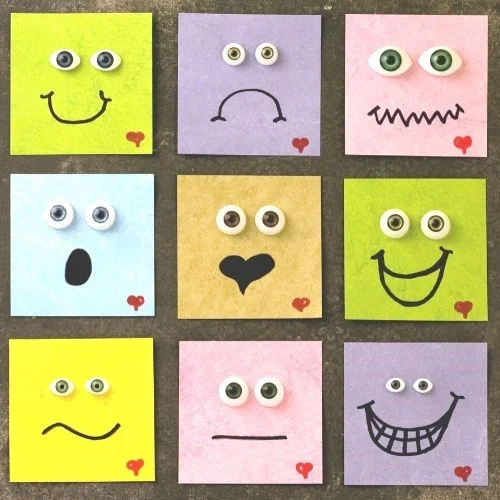
Naming your emotions is a powerful tool for self-awareness and emotional regulation. By identifying what you’re feeling in any given moment, you become more in tune with your emotional state. So when anger starts to bubble up, pause for a moment and acknowledge it. This simple act of recognition can help you approach the situation more calmly and constructively.
As you practice naming your emotions, you’ll develop a deeper understanding of your emotional landscape. This heightened awareness allows you to process your feelings more effectively and navigate potentially volatile situations with greater ease. By recognizing and addressing your emotions, you can foster healthier relationships and a more balanced emotional life.
5. Observe How You React
When emotions run high, it’s easy to let them dictate your reactions, often leading to less-than-ideal outcomes. Spend some time reflecting on your typical responses to both positive and negative news. Do your reactions align with your intentions? If not, make a conscious effort to adjust your behavior the next time you encounter a similar situation. Admittedly, this change might feel challenging and unnatural at first.
Persevere through the initial discomfort, and continue practicing this mindful approach to managing your emotions. Over time, you’ll notice that it’s easier to remain calm, leading to more balanced and appropriate responses. This emotional growth will not only benefit you but also the people around you, fostering healthier communication and conflict management leading to stronger relationships.
6. Look at the Bright Side
Embracing a positive outlook, even in challenging situations, may seem daunting at first, but it’s a powerful step toward a more contented life. Strive to uncover the silver lining in every circumstance, no matter how dire it may appear. Whether it’s a valuable lesson gleaned from failure or a newfound appreciation for your resilience, there’s always something to be gained.
As you cultivate this optimistic perspective, you’ll begin to view the world through a “glass half full” lens. This shift in mindset not only improves your overall outlook but also attracts more positivity into your life. With persistence and intention, you’ll find yourself growing happier, more resilient, and better equipped to navigate life’s inevitable ups and downs.
7. Relax
Relaxation plays a crucial role in maintaining your mental well-being, fostering a healthy and happy state of mind. While it’s not an excuse to be idle all day, it’s essential to carve out moments in your daily routine to unwind and release the day’s stress, even if it’s just for a few minutes.
Meditation is a highly effective practice for achieving relaxation and mental clarity. By regularly incorporating meditation into your schedule, you’ll find yourself better equipped to manage stress, gain perspective, and maintain a balanced mental state. Click the link to explore how to meditate effectively, and start your journey toward a calmer, more focused you.
8. Exercise

Exercising is a great way to not only improve your physical health but also your mental health. In fact, a 2010 study published in the journal Psychosomatic Medicine shows that exercise can help fight depression, at least in mice. In fact, exercise can help with all sorts of things including memory improvement and pain management.
Your muscles release chemicals called endorphins that act as natural painkillers and make you feel good about yourself. Exercising also releases hormones like dopamine and serotonin that can improve your mood and boost your energy. If you would like help getting started check out this link for more information on how to build your exercise routine.
9. Eat Better
Just as exercise is crucial for your well-being, maintaining a balanced diet is equally important for optimal physical and mental health. With numerous diet options available, it’s essential to find one that suits your needs while prioritizing whole foods and limiting processed items, sugar, and excessive carbohydrates. Remember, keeping things simple and avoiding overcomplication can lead to a more sustainable and enjoyable eating plan.
To better understand the principles of a healthy diet and to find the eating plan that works for you, researching and seeking expert advice is always beneficial. Check out this article for more information on proper diets, and embark on your journey towards a healthier, more balanced lifestyle. Remember that nourishing your body properly will provide lasting positive effects on your overall well-being.
10. Build Resilience
Resilience is having the courage to get back up when you’re knocked down. It’s about learning from setbacks, accepting them as challenges instead of failures, and it’s about knowing that you are not your mistakes and that failure is a stepping stone to success.
In the Air Force, we learn about four pillars to build strong resilience. These pillars are mental, physical, social, and spiritual. If you would like to learn more about building resilience you have to come and check out my article on the four pillars of resilience.
Tips for Developing Emotional Intelligence With Other People’s Feelings
1. Understand How Your Emotions Affect Others
Recognizing the impact of your emotions on others is essential for cultivating a positive atmosphere. It’s no secret that when you’re feeling grumpy or upset, those around you often absorb that energy, becoming similarly discontent. Conversely, when you radiate happiness and warmth, those in your presence tend to mirror your positivity. Embrace the power of your emotions and let a simple smile and greeting bring joy to someone else’s day.
By being mindful of your emotional state and its influence on others, you can actively contribute to a more uplifting environment. Make a conscious effort to spread positivity through your demeanor and actions, and observe the ripple effect it creates. Watch how easy it becomes to connect with others when you are in a better mindset. As you brighten the days of those around you, you’ll also find your own mood and outlook on life improving.
2. Listen
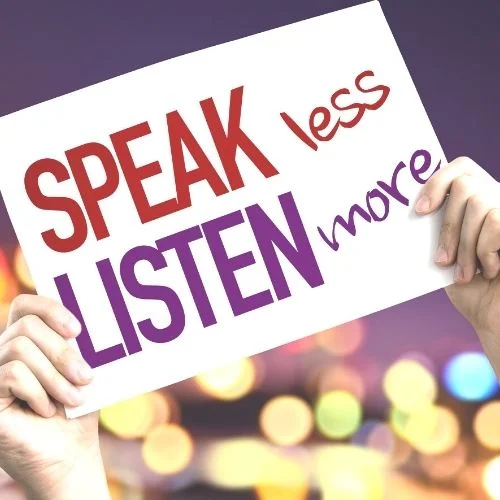
Active listening is more important than talking many times. Too often we are thinking about what we are going to say next instead of listening to what the person we are talking to is saying. This can make it seem like you and the other person are talking two different languages.
Listening is also a great tool for making somebody feel a lot better. When someone is telling you how bad their day is, they are not necessarily looking for advice. They just want to get it off their chest. Be that sounding board for others and let them know you care.
3. Understand What Motivates Others
What motivates and inspires you, may not be the same thing that drives others. Many different things can drive people. Power, money, and pride are just a few motivators.
Understanding what motivates others can be a great tool when talking to others. Knowing how to motivate others can be used to help get them in a better state of mind, making them happier, more productive, and build stronger relationships.
4. Build Rapport
Rapport is when two people have created a connection through effective communication. Typically, the stronger rapport there is between two people, the stronger the relationship is. Rapport is something that builds over time but that doesn’t mean you can’t build rapport with someone you just met.
One of the best ways to build rapport is to find common ground with people. This can mean shared experiences or interests or even similar experiences or interests. Learning to build rapport effectively is a strong skill for communication, if you would like more info on how to quickly build rapport, check out my article on mastering your communication skills.
5. Learn Body Language

Body language is a form of non-verbal communication. It can say a lot about how others are feeling. Even if their words are completely different. For example, if you ask someone how they are doing and they say great but they are frowning and not their typical happy self, they are probably upset or sad about something.
Your subconscious mind already picks up on a lot of these cues but learning to consciously spot them can help you get a better understanding of people and their true feelings. Understanding body language will boost your social skills, making you a better listener.
6. Be Interested
Taking an interest in how others perceive the world is not only a great way to build rapport but also shows them that you care. This means you have to listen. For example, if someone is out of work because they had a dentist appointment, ask them how it went when they return. Take an interest in what is going on with others’ lives instead of being consumed by what is happening in your own life.
Be empathetic and sincere. Don’t just ask them how their day is and drift off when they start telling you about something that’s bothering them or something that excited them. It all goes back to being a good listener.
7. Open Yourself Up

Establishing a deep connection with someone often begins with opening up and being vulnerable. By sharing your own personal experiences, whether they’re embarrassing moments or sources of sadness, you demonstrate your trust in the other person. This act of honesty can inspire them to feel more comfortable and secure, allowing them to reciprocate and open up to you as well.
The foundation of any strong relationship is built on trust and openness. As you gradually reveal your innermost thoughts and feelings, you create opportunities for others to do the same. By taking the first step towards vulnerability, you pave the way for meaningful connections and mutual understanding, fostering a bond that is both authentic and long-lasting.
8. Think About How They Feel
Empathy involves putting yourself in someone else’s shoes and genuinely attempting to understand their perspective. While it’s natural to imagine how you would feel in their situation, it’s important to remember that each person’s experiences and reactions are unique. Our individual backgrounds, beliefs, and coping mechanisms shape the way we respond to various situations. So, instead of projecting your own emotions onto them, focus on understanding their feelings and how they’re navigating through the circumstances.
Developing a deeper sense of empathy not only strengthens your relationships but also broadens your understanding of the diverse ways people handle life’s challenges. Remind yourself that there’s no one-size-fits-all approach to dealing with situations and that differing responses don’t necessarily imply right or wrong. By embracing this mindset, you’ll foster a more compassionate and supportive environment for yourself and those around you.
9. Be There
Being there for someone is all about making yourself available, even amidst the hustle and bustle of daily life. Taking just a few minutes out of your day to lend a listening ear can have an immense impact on someone’s well-being. By allowing them to vent and express their emotions, you provide a safe space for them to find solace and support.
Keep in mind that your presence and willingness to listen are more valuable than any advice you may offer. Sometimes, all someone needs is a friend who’s there to listen without judgment or criticism. Remember to prioritize these moments and make time for those who matter to you, because even the smallest acts of kindness can leave lasting impressions and strengthen your bonds with others.
10. Help Others
Being there for others involves more than just listening; it’s also about offering help and guidance when needed. Whether it’s providing emotional support or assisting someone in achieving their personal development goals, your willingness to lend a helping hand can be invaluable. Keep an eye out for opportunities to not only listen but also guide and mentor those around you, as it’s through these actions that you’ll leave a lasting impact on their lives.
Creating a meaningful legacy isn’t solely about tangible accomplishments; it’s also about the wisdom, support, and encouragement you pass on to others. By offering help in various forms, you contribute to the growth and success of those around you, ultimately shaping the world in a positive way. Remember, your actions and kindness can leave an indelible mark on people’s hearts and minds, so always strive to be there for others and make a difference in their lives.
Wrapping Up Our Guide on Emotional Intelligence Skills
Developing emotional intelligence is something anyone can do. There may be setbacks but if you keep building this skill the results will astound you.
Build up your emotional intelligence by increasing your ability to recognize your emotions and the emotions of others to see many doors open up in your life. You will make more friends and have better relationships with family and work colleagues leading to more happiness and success in life.
If you enjoyed this article on developing emotional intelligence, share and subscribe using the buttons below.
